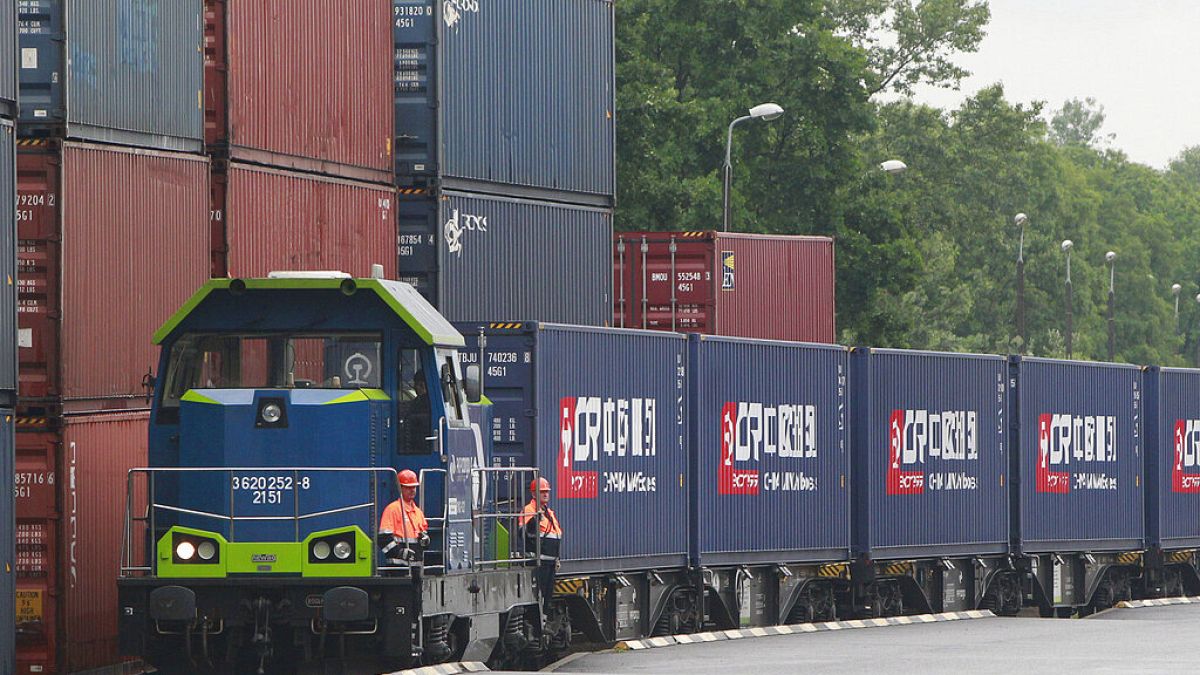China is Poland’s second-largest trade partner, while Poland remains a relatively minor market for Beijing.
China and Poland have established the first regular rail connection between the two as part of a project meant to strengthen trade between Beijing and Warsaw.
The project, in line with China’s Belt and Road Initiative, launched more than a decade ago, is being touted as reestablishing the ancient Silk Road between Europe and Asia.
The newly inaugurated rail connection is part of Beijing’s strategy of expanding its trade networks. Analysts say it could also provide Europe with new ways to export products to Asian countries.
Magdalena Rybicka, Director of the Institute of Asian Studies at the Vistula Academy of Finance and Business, said the route could also be used to export Polish products to China, food in particular.
“At the moment, it carries mainly household appliances, air conditioners, it carries all sorts of small equipment, but later, it will also take Polish products back to China,” Rybicka told Euronews.
According to her, this might work in Warsaw’s favour in balancing out a very skewed exchange: at the moment, China is Poland’s second-largest trade partner, while Poland remains a relatively minor market for Beijing.
A business opportunity or another inroad for Beijing?
Radosław Pyffel, an expert in China’s international policy, discusses the broader implications of this railway connection for Europe: “We watch the Euro 2024 and a lot of companies who are sponsors of this event are companies from China.”
“So it shows us something interesting that the Chinese companies are planning to develop in the European market, and certainly this is a business opportunity.”
Pyffel thinks Poland will not be the centre of this process, but it can be an important part of it. According to him, other countries like Hungary, Italy and Spain will also try to attract investments from China.
However, the situation on the Polish-Belarusian border — through which the train passes — and growing tensions with Minsk may impact the railroad link.
At this point, the Polish government does not rule out completely closing the borders with its eastern neighbour if the migration crisis continues to grow.
At the same time, Brussels has been keeping an eye on Beijing’s investments in EU countries, especially after an investigation opened last year found that the Chinese electric vehicle industry “benefits from unfair subsidisation, which is causing a threat of economic injury to EU (battery electric vehicle) producers.”
This triggered the EU to introduce steep tariffs on China-made battery electric vehicles (BEVs) earlier this month, a move that could redefine the relations between the two in the upcoming period.

